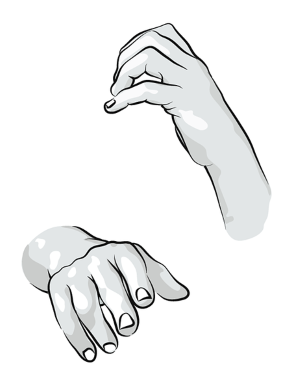Steve Baxter's Blog
Cello Grading
Learning an instrument for charity with lot of help from my friends.

I was much amused by the situation. I was sitting outside the exam room waiting for the tinkle of the bell that signalled it was my turn to face the examiner. As anyone who has been nervous about an exam, performance, presentation will attest, the worst time is the wait just before the start.
My exam was the Associated Board of the Royal School of Music (ABRSM) Cello Grade 1 Practical exam which I was taking for charity, sponsored by my generous friends and family. Consider it a musical alternative to abseiling down a local tall building, running a marathon or sitting in a bathtub of baked beans.
My amusement was at the expression on the face of the sole child in the waiting area, perhaps wondering why all these adults were taking a childrens' exam.
Learning not to Squeak
This was the culmination of some four months of lessons and practice. Being a non-musician, barring Grade 5 trumpet at the age of 15 and the ability to play the first two pages of Beethoven's Moonlight Sonata on the piano, it was a bit of a steep learning curve.
Fortunately I had allies.
My looming exam consists of some set pieces, some scales to play from memory and some music tests including an oral requiring me to sing phrases to the examiner. Me. Sing? Scary stuff.
My allies
My first ally was my wife, stage name Rebecca Gilliver and she is a proper cellist. Principal of the London Symphony Orchestra no less. On the day of my exam she was playing in a quartet at the Wigmore Hall in London. Even if you are not into classical music you have probably heard her play, on films such as Harry Potter and TV programs such as Downtown Abbey. Rebecca was my main, and so patient teacher.
Other allies included my friend Jennie Brown, also a LSO cellist, who gave me a valuable lesson and advice. Her feedback was usually prefixed with the phrase ‘..do you mind if I’m a bit rude about your playing…'
Another cello friend is Judith Broadbent – who is actually an ABRSM examiner. She offered great advice over the phone and some test sight reading pieces for me to practice on.

My final ally, and almost as awesome as being taught basic cello by the Principal of the LSO, was my accompanist; the internationaly renowned pianist Sophia Rahman. I play three set pieces in the exam which require a piano backing and Sophia, living close to the exam venue and up for a laugh, agreed to accompany me. If you Google Sophia you will pretty quickly work out that she is also a serious musician. Fortunately one with a great sense of humour. I was confident that whatever notes I happened to play, in whatever order and at whatever speed, Sophia’s playing could carry me through.
It was all a bit like taking your first guitar exam with Eric Clapton as your tutor and Pink Floyd as your backing band.
Practice Makes Permanent
Something that became clear very early on was the importance of correct practice. The biggest hurdle I had to face was getting the physical posture and movement skills right – the position of the cello which sits upon an adjustable steel spike, the bow hold, the motion of the bow in a straight line across the strings with the right speed and pressure, shoulders and elbows correctly positioned. All are essential to get the right quality sound and intonation. As cellos don’t have frets like guitars you have to judge perfectly when to place the fingers of your left hand to play the different notes. A millimetre out and you are gratingly sharp or flat – this is called bad intonation. Whilst practicing in our lounge an occasional ‘ouch! SHARP’ or ‘you are SOOO FLAT’ would be yelled from whatever other part of the house my wife was in.
Yet some of the more frustrating hurdles I had to cross were due to ‘practicing in’ errors and making them automatic. Not noticing a wrong note played in a phrase, repeated, becomes unconscious, wrong and a habit.
The process of practice became playing each piece and when hitting a problem, working just that small section until it became fluent with correct tone, intonation, volume and phrasing before moving on.
Listening to Teacher
…is something I have to admit I was rather poor at. Especially when I was focussing on my intonation and she was going on about my bow hold. I knew my bow hold had collapsed and turned from a delicate, flexible, poised affair into a something more suitable for hammering in nails. But I was trying to get the other had right and couldn’t possibly get two things right at the same time.
Generally, when Rebecca pointed out a simple correction I needed to make to dramatically improve my playing then I would immediately incorporate it into my playing…. some days later.
Applying my Hypno Skills
So, remembering that this is a hypnotherapist’s blog I am guessing that you are correctly assuming that I used some of the skills on myself.
This was the source of the amusement I mentioned at the start of the blog. The idea that me as a hypnotherapist who works with classical musicians and writes on dealing with stage fright, performer anxiety, bow shakes – probably should be setting a personal example. I chuckled at the thought that I was simply not allowed to be nervous in any way for PR reasons.
So what ideas, skills, processes that I typically use with my clients DID I use on myself. Did I walk my talk?
Anxiety is useful
Whenever I see clients with any kind of anxiety – which in our modern society is becoming more and more common – I start off by pointing out that this emotion is supposed to be helpful and important - this emotion which is possibly currently debilitating, or ruining their performance and sometimes even leading them to consider giving up their career.
Anxiety is a message, a useful reminder. It is telling us to be prepared, be attentive and alert. It is useful unless that message is invalid or exaggerated.
Just reminding ourselves that some level of anxiety is normal and useful is a worthwhile thing to do. Get the message, don’t submerge yourself in it. I decided to call my anxiety ‘excitement’.
Keep it Real
When we get anxious we tend to distort our thoughts. We catastrophise (‘It is going to be a DISASTER’), we discount our often considerable skill and experience (‘I CAN’T do this’), we mind read and predict the future (‘They will HATE my playing’). We do the mental equivalent of slamming doors in our face (‘It is TOO difficult for me’). In a panic state we do ‘black and white’ thinking and mentally close the door on even considering other options, we hear it in our language when we say things like ‘I MUST do…..’
I focussed on some key beliefs which I mentally reminded myself of whenever I started feeling anxious and saying such nonsense to myself:
- If I learn and practice well, I will get sufficiently good at this.
- Mistakes during practice teach me, as long as I spot them.
- It is about the music, my performance, not me personally.
- Good enough is good enough, better is a bonus. I will probably make mistakes on the day – it isn’t about not making mistakes it is about demonstrating a general level of ability.
Of course we should aim high, yet be rational. Decide to do the best we can but don’t expect perfection. Perhaps even include enjoyment in your goal. I want to get really good at X and enjoy getting there. Goals in themselves are rarely as important as becoming the kind of person capable of achieving that goal.
Mental Rehearsal

When I was learning I mentally played scales, reminding myself of which strings and which fingers played which notes. In my mind I flawlessly executed scales and arpeggios.
More importantly I mentally imagined waiting and walking into the exam, playing my pieces and exercises, doing the music tests. Yet I was not some much practicing the actual exam – I was rehearsing being mentally calm and physically relaxed. I was training my brain and body to be relaxed in that situation.
I mentioned that I had taken the grade 5 trumpet when I was 15, I can still remember how nervous I was and how relatively poorly I played. I did pass. I still have my school trumpet, and it still has the dented bell from when it slipped out of my nervous, sweaty hand at the end of the exam.
Use your resources
There are very challenges few in life that we face totally alone and in isolation. Facing and overcoming previous challenges has built emotional muscle. Learning to do something difficult reveals that good teaching, awareness and correcting errors, study, practice will inevitably build skill. This is something you know and can rely on when facing a new challenge.
As I did to my great benefit – we can call on our friends, whether for practical support or encouragement.
So when I walked into that exam, I had the benefit of all the other exams and tests I had walked into, all the challenges I had faced. I had the support and hugely valuable passed-on skills of my allies.
The only way to truly fail is to avoid such experiences. Even a challenge faced and failed has the potential to teach us. Ironically the people who want to stay safe, to be right or to avoid failure tend to avoid challenging situations, fail to move out of their ‘comfort zone’ and thus fail to develop the skills, attitudes, beliefs that will most help them achieve that goal. Their lack of emotional muscle, ability to be flexible, learn and apply themselves means they cope poorly when life does throw a bend in their path.
How did I do?
Sophia said this in an email to Rebecca ‘Steve was great! I thought he coped brilliantly with a tricky situation. He was much calmer than the other two’
The other two, like most of the other people taking a Grade 1 exam for the GradeOne-Athon, are professional musicians learning a new instrument for the event. Proper musicians used to being paid to play in front of audiences. Being a non-pro I of course had it easier, with no expectation of any underlying musical competence to be disappointed!
Did I pass? Probably, there is a two week wait for the result.
Exam done and Charity commitment satisfied I’m now looking at Grade 2. Rebecca says that we can get onto the basics now…..she did skip this exam as it was too easy for her. When she was 8.
Update: Results are in - a good pass, with merit. I am delighted!